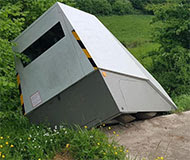Speed cameras are being vandalized and destroyed across France and Australia, raising concerns about public resistance to automated traffic enforcement and its role in road safety and revenue generation.
Mounting Attacks on Speed Cameras
In both France and Australia, a growing number of speed cameras are being targeted by activists and frustrated motorists. These acts of vandalism range from spray painting lenses to completely dismantling or burning the units. In France alone, nearly 75% of speed cameras were damaged or disabled during the height of the Yellow Vest protests, according to Reuters.
In Australia, particularly in New South Wales and Queensland, drivers have taken to social media to share photos of sabotaged cameras. Over 200 mobile speed cameras were reportedly attacked or blocked in 2024, with calls from citizen groups to "take back the roads."
Public Sentiment: Safety or Revenue?
Critics argue that speed cameras are less about public safety and more about generating revenue. In France, camera fines generated nearly €1 billion annually before widespread vandalism reduced that figure dramatically. In Australia, mobile speed cameras generated over $500 million AUD in fines in 2023, fueling backlash from drivers who feel the enforcement is excessive or unfairly hidden.
Many citizens feel cameras are being placed in areas designed to trap drivers rather than prevent accidents. Others believe these systems disproportionately penalize low-income drivers who can't afford the fines.
Government Response and Legal Consequences
Governments in both countries have condemned the vandalism and stepped up efforts to protect the devices. France began deploying new-generation “turret” cameras equipped with facial recognition and 360° monitoring. In Australia, camera operators now travel in unmarked vehicles and report attacks directly to law enforcement.
Vandalizing traffic cameras is a criminal offense in both countries. In France, destruction of public property can result in up to five years in prison and heavy fines. In Australia, the penalties vary by state, but jail time and restitution for the cost of repairs are common outcomes.
Global Trend or Isolated Incidents?
The anti-speed-camera sentiment is not isolated to France and Australia. Similar backlash has been seen in the U.K., the U.S., and Germany. In some cities, citizen groups have filed lawsuits arguing that speed cameras violate due process or privacy rights.
With rising public frustration over perceived government overreach and opaque enforcement tactics, the attacks in France and Australia may be the beginning of a broader global pushback against automated ticketing systems.
Conclusion: A Call for Transparency and Reform
While speed cameras can play a role in reducing dangerous driving, the public’s growing hostility signals a need for reform. Transparency in camera placement, improved public education, and data-driven deployment could help rebuild trust. Without these changes, the conflict between governments and drivers will likely escalate.











